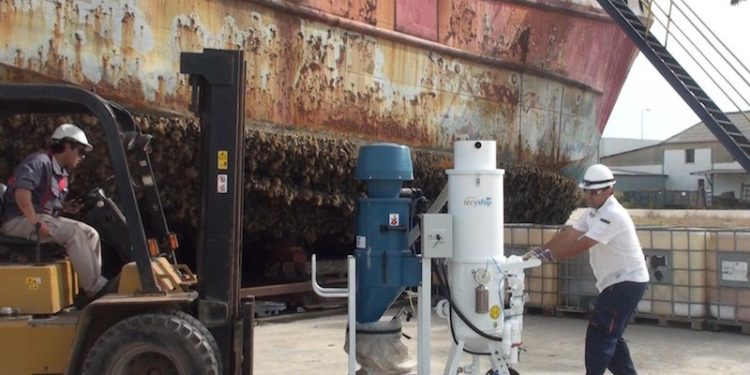Recycling techniques for end-of-life tonnage developed by a LIFE project are now being used by shipyards in Spain to scrap fishing vessels and support ships. Reciclauto Navarra, the company behind the project has just signed an agreement to be involved in safer ship recycling in North and West Africa.
From 2010-13, the EU invested nearly €1.70 million in the €3.40 million Recyship project to dismantle old vessels in a way that was both environmentally friendly and economically viable. End-of-life ships from European owners are often dismantled in emerging economies to sidestep safety norms for dangerous compounds built inside them. This is in contravention of the Basilea Agreement, which bans the export of dangerous waste to developing countries.
‘A boat out of use is an environmental bomb – we are talking about oil, we are talking about asbestos. This project is very important because we are avoiding sending such a bomb to the bottom of the sea,’ explained Recyship communications manager Jesus Jiménez at the Navalria Drydocks in Aveiro, where trials of new dismantling technologies and procedures took place.
The Recyship team has validated prototypes, for steel cutting, for paint removal and for treatment of water and other waste liquids. It also developed protocols for workers to ensure safe and environmentally-sound dismantling.
The EU Ship Recycling Regulation (1257/2013) requires that, by the end of 2018, all large commercial seagoing vessels flying the flag of an EU Member State will have to be recycled in ship recycling facilities included in the European registry of boat recycling plants. This will ensure the work is done safely and without environmental harm. Around 150 European-flagged vessels are put out of use every year, creating a significant opportunity for new employment (up to an estimated 400 new jobs in Spain alone). With the LIFE project’s support, Navalria Drydocks became one of the first shipyards to be included in the registry.
Growing industry
‘The aim is to make more services available for out-of-use and end-of-life ships, in line with the circular economy objectives of the EU,’ said Miguel Ángel García Molina, managing director of Reciclauto Navarra. He explained that ‘larger naval and commercial vessels should begin to be dismantled in major French and Spanish shipyards in 2019-2020.’
His company has also reached an agreement to be involved in ‘ongoing projects for dismantling of large vessels and military vessels in Senegal, Libya, Morocco and Algeria under the Ship Recycling Regulation.’
‘This will help to achieve the objectives set by Europe for the circular economy and immigration, to support and develop employment-generating activities that help not only the environmental economy but also the social and economic one,’ he commented, although further investment is necessary to build this nascent green industry.
‘We are open to international partners who want to invest in these projects as well as investment funds and financial institutions that want to support this type of initiative,’ Miguel Ángel García said.









